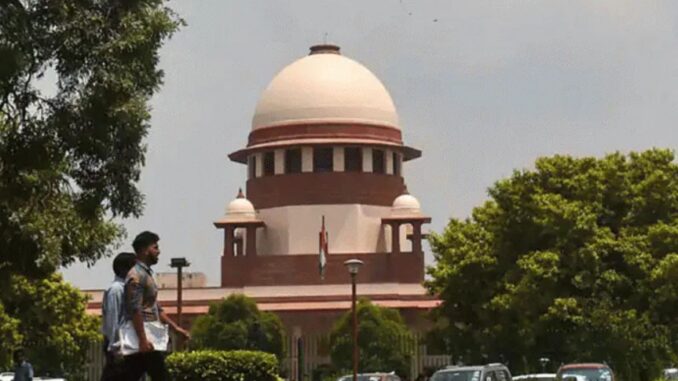
NEWDELHI: In a landmark ruling, the Supreme Court on Monday upheld the validity of the 103rd Constitution amendment providing 10 per cent reservation to people belonging to the economically weaker sections (EWS) in admissions and government jobs. The top court said the law on the EWS quota does not violate the basic structure of the Constitution.
The EWS quota is not discriminatory and does not alter the basic structure of the constitution, said the Supreme Court bench in a 3-2 majority ruling. The quota bypassed affirmative action that benefits communities traditionally marginalised in the Indian society, like the Scheduled Caste and Scheduled Tribes (SC/STs) and Other Backward Classes (OBCs).
At the outset, the Chief Justice said there are four different judgements on pleas challenging the EWS quota. Justice Dinesh Maheshwari, who read the order himself, said the 103rd constitutional amendment does not breach the basic structure of the Constitution.
Justice Bela M Trivedi said the 103rd constitutional amendment cannot be struck down on grounds of being discriminatory. Justice J B Pardiwala concurred with their views and upheld the validity of the amendment. Justice S Ravindra Bhat, in a minority view, dissented and struck down the constitutional amendment on the EWS quota. CJI Lalit concurred with the view of Justice Bhat.
“Economic destitution, economic backwardness is the backbone of this amendment and on this account, the amendment is constitutionally indefensible. However, excluding the classes such as Scheduled Caste/Scheduled Tribes, Other Backward Classes (OBC) is not constitutionally permissible,” Justice Bhat said.
The quota was introduced through the 103rd constitutional amendment, cleared in January 2019 by the Centre soon after the ruling BJP lost the Madhya Pradesh, Rajasthan and Chhattisgarh elections. It was instantly challenged in the Supreme Court.
Petitions had questioned how the quota could cross the 50 per cent national cap on reservation set by the Supreme Court in 1992 and whether it changed the “basic structure” of the constitution. Most opposition parties, including Congress, did not oppose the law. But as many as 40 petitions were heard by the Supreme Court against it, including by the state of Tamil Nadu, which has among the highest reservation in the country.
The case was first presented before three judges, who referred it to a larger five-judge bench in 2019. This September, the court held a marathon six-and-half-day hearing of the case and reserved its verdict.
Bureau Report
Leave a Reply